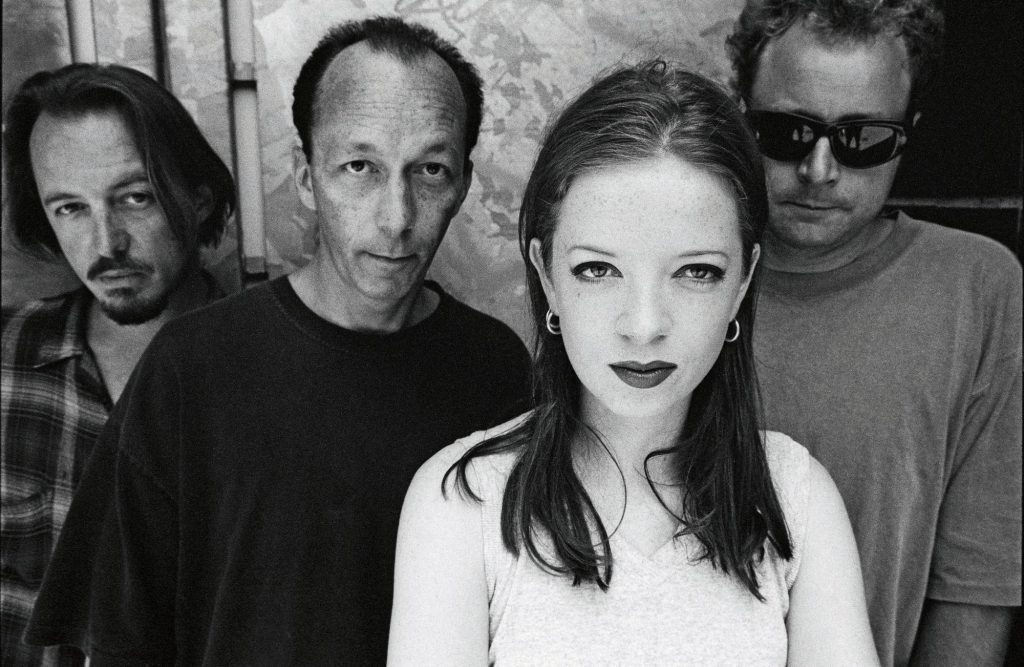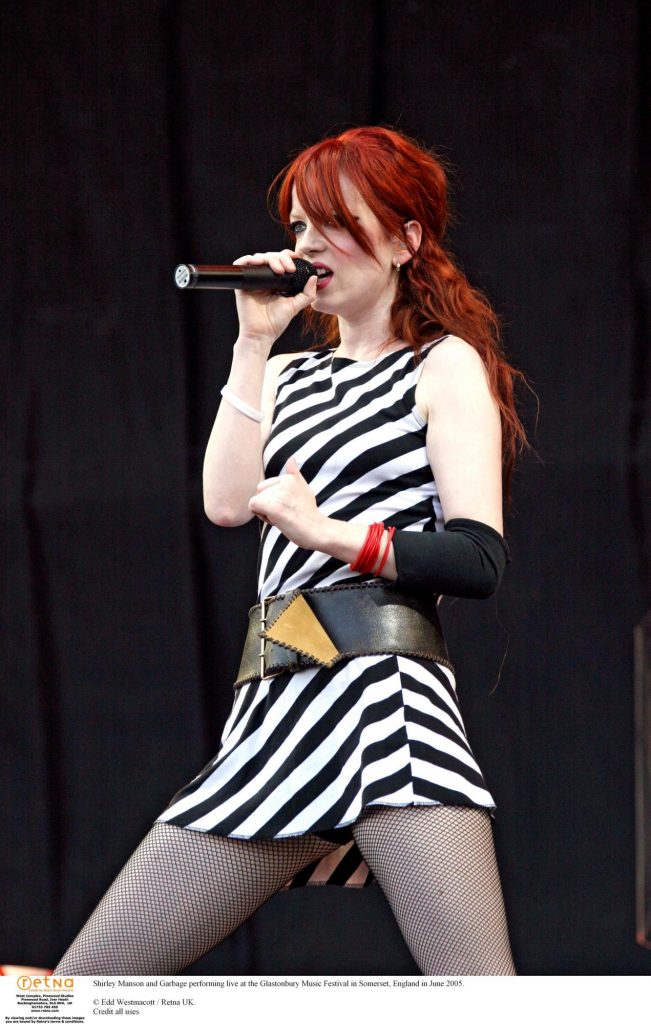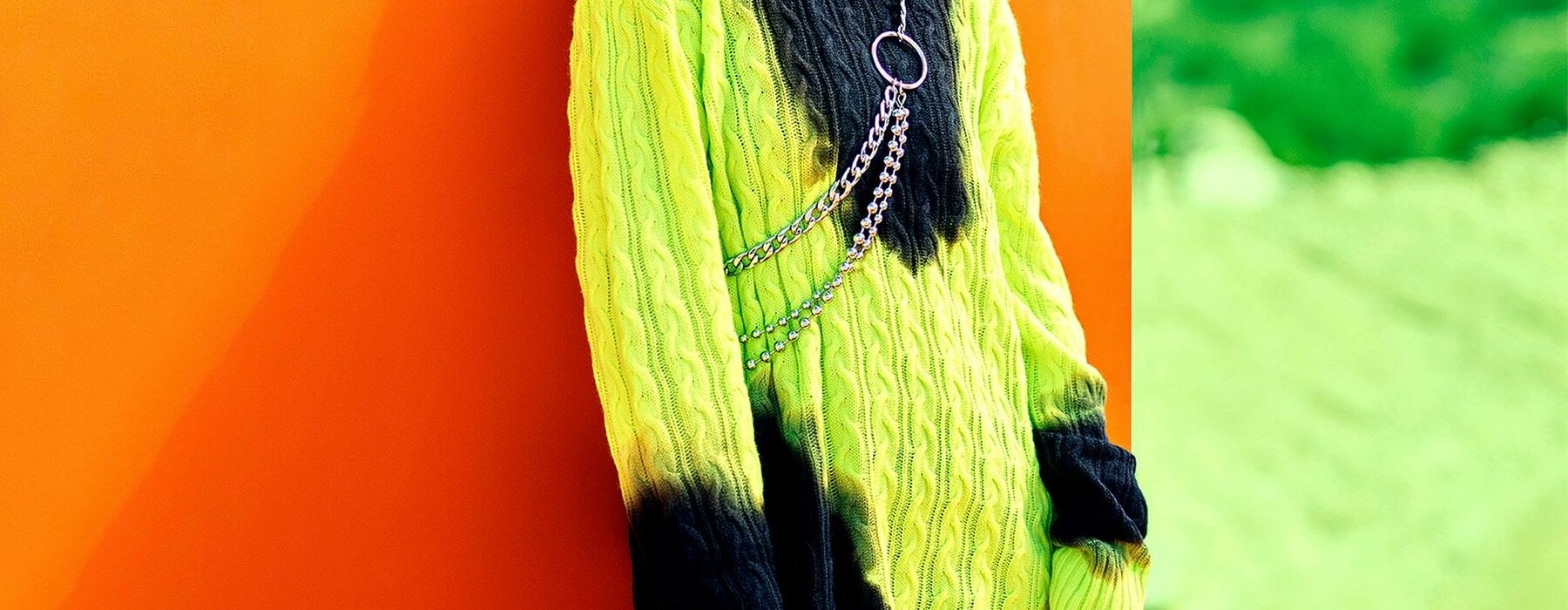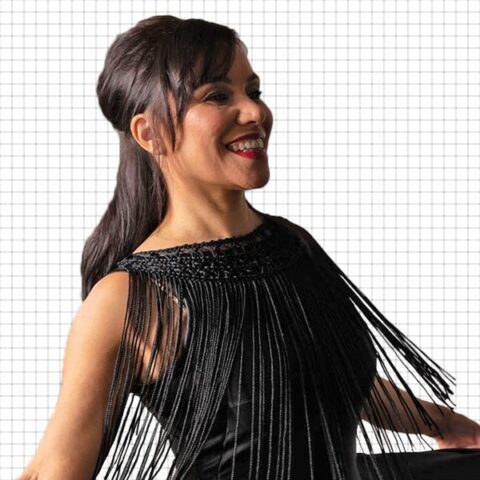The Garbage frontwoman waxes lyrical about the art of destruction and why she’s putting her faith in future generations. Siena Yates writes.
“The men who rule the world have made a f***ing mess.”
That’s the first line of the first single from Garbage’s recently released album – their first in five years. It’s swiftly followed by the hook: “The violator, hate the violator/The violator, destroy the violator.”
“I have to confess, I have fantasies of going out – finally – and playing a show, and playing “The Men Who Rule the World” and I can literally visualise the audience singing along with ‘the violator, destroy the violator’,” says Shirley Manson, with a wry laugh.
The Garbage frontwoman is speaking over the phone from her home in Los Angeles, with her thick Scottish accent, an abundance of profanities and a lot of laughter. The glint in her eye somehow comes through in her voice as she continues, “I can envision that in my mind and it gives me a thrill every time. Because I think people are frustrated and I think people are scunnered.”
Scunnered, Shirley explains, is a Scottish word which basically means to be exhausted or fed up over certain situations. “And I think human beings are scunnered right now with how things are. It seems that we’re all sort of realising our world has changed and yet our ruling parties haven’t caught up with the change. They’re stuck in the past, and they haven’t figured out that the world has changed. And they therefore have to change their thinking, and really come up with different ideas for the first time in arguably 100 years, if not more. They really have their work cut out for them. They have to pivot and I just see so much reluctance for these systems to pivot and readdress the world we live in, you know?”
If that state of feeling utterly scunnered that birthed Garbage’s new album, No Gods No Masters.
Shirley is a music icon, a feminist icon, an actor, writer, and more recently, the host of the hit music podcast The Jump. She’s been in the music industry since she was 15 and has been Garbage’s lead singer and writer for nearly half her life.

PHOTO VIA GETTY
In all that time, she’s never been known for pulling any lyrical punches. She says what’s on her mind – and often, the minds of the masses – and she does it without sugar-coating.
She’s been just as raw in interviews and interactions with fans over the years, denouncing certain behaviours, calling people and businesses out by name and advocating for other women, as well as on a personal level, speaking openly about mental illness, self-harm and even her own sexual assault.
In an interview with The Guardian, Shirley said, “People get uncomfortable when you tell the truth. I don’t. I’m happy to feel. I wanna feel every single fing thing. I want to feel the breeze, the punch, the disappointment. I want to feel love, lust and everything in between because I’m here for an infinitesimal amount of time. I wanna feel it all. I’m a greedy motherfer.”
So it’s maybe little wonder that after more than a year of Covid, Black Lives Matter, #MeToo, and everything else happening around the world, Shirley has channeled what she’s been feeling lately into a song about destroying the violator.
The rest of the album follows similar themes, with track titles such as “The Creeps”, “A Woman Destroyed”, “Flipping the Bird” and “This City Will Kill You”. It’s an incredibly timely album, but what gives it power is the authenticity Shirley’s built her career on.
“For me personally, at this time in my life – I think probably because I’m older – I definitely had some things I wanted to talk about,” says the 54-year-old.
“It just so happened to coincide with a moment in our history where we found, much to our surprise, that people want to engage with the themes on this record and a lot of these things are pressing on everybody’s minds, and as an artist, that’s a very unusual experience to enjoy.
“The overarching theme of the record is just being a person in the world really trying to make sense of what I see around me currently and my frustration and my annoyance,” she says.
But it’s also about her hope. There is anger and disappointment and grief, but as she tells me when I speak about my own hope for the future, “We must never lose hope, my darling. Never.
“I know it’s terribly old-fashioned of me, but I still believe in science, I still believe in evolution. I still believe in vaccines, you know?” she jibes.
But more than that, she has hope in the generations following us, who are “way more sussed out than we ever were” when it comes to racism, sexism, capitalism, the environment and more. That’s why the album is, at its core, a positive one.
“I feel like things are changing. I think all the bigots and the haters had better watch out because things are shifting. I think people have really reached their limit of watching cruelty unfold towards human beings.
“People are at the mercy of the dollar and I think that’s a very dangerous mindset for us as a society to get to, where the dollar is more important than the human being.
“And I know I’m sounding really naive. I know that I’m simplifying something incredibly complex. But at the end, when you boil everything down, it’s a matter of human decency. So what do you believe in? What do you want to see change? And then you have to embody that change in your own life because that’s the only power you have as a human being, and that’s how I wish to move forward in my life.”
I note that it’s encouraging to hear an industry icon like Shirley putting hope and faith in the next generation, as all too often, people in her position look down on the youth of today – particularly young artists.

She gets why other artists do it. It comes down to self-preservation and the idea that each generation has it easier than the one before it.
“It’s a way of protecting your own ego and also the value of your work and I understand. I just personally am turned on by watching young people and their environment and their struggle which is so different from mine. Everybody has struggles, just different ones. And my hope for the human race is with the young ones, because Lord knows we’ve had our chance. We had our chance to change the world and we didn’t do it. Not to the extent that maybe we hoped for when we were young. So now another generation gets a chance to have at it and change the world and I find that really exciting.”
We’ve all got our work cut out for us though, and that’s something Shirley is all too aware of. With changes happening globally around diversity, representation and justice, the superstar knows as well as anyone that it’s just the beginning.
As a feminist icon in the music world, she’s forever being asked about the state of the industry in its treatment towards women. Usually, artists will talk about the small improvements over the years, their hope for the future and their confidence that we’re at least headed in the right direction.
Usually, they’ll take the diplomatic approach. “But we don’t have time for that anymore, do we?” Shirley sighs.
She has no problem admitting she’s not seen much improvement at all in how women are treated – not just in the music industry, but in her lifetime.
“I mean, the music industry is merely a microcosm of society, right? So whatever is happening in the music industry is happening elsewhere and vice versa. So the bigger question is what’s happening with sexism and misogyny and sexual assault and domestic abuse in our culture and our society at large? The statistics are still through the roof.
“I resent that the mainstream media has not supported women in the way I would like to see them do. I feel like there’s still a lot of finger pointing and victim blaming and it offends me deeply,” she states.
In particular, she says she’s “amazed and dismayed” by the lack of male voices in such conversations.
“I’m fed up with this being couched as a female problem because I really feel this is a male problem; this is violence perpetrated by men. The statistics speak to an alarming amount of men in our society who are violently raping and/or casually being sexist, beating women and/or just casually harassing women. I’m offended by it, I want to see change, but until men join in with this conversation, until they are the ones that hold other men accountable, I don’t care how many laws are written into the industry, or how many governing bodies are created, it’s not going to make a f***ing damn difference.
“We need to change the way we educate our children. It needs to start with educating parents about how they rear their kids – male and female – and then we have to look at the education systems. But something has to give. Something really has to change. And I would like to start with pointing the finger at the male members of our society. This one is laid right at all of your feet, whether you participate in abuse or not. This is a male problem.”
That’s another aspect of what the new album is about; it’s unapologetically pointing fingers where they need to be pointed, shaking off diplomacy and niceties and demanding some type of action, from others, as well as herself.
At the end of the day, what this album is about is Shirley setting down her place in the conversation.

“It’s definitely noting, for the record, my absolute disillusionment with how things are run,” she explains. “It’s noting for the record that I resent racism and I resent misogyny, I resent xenophobia, etc, etc.
“And you know, there’s something really relieving about leaving a public record behind like, ‘This is where I stood in this moment, where did you f***ing stand?’”








